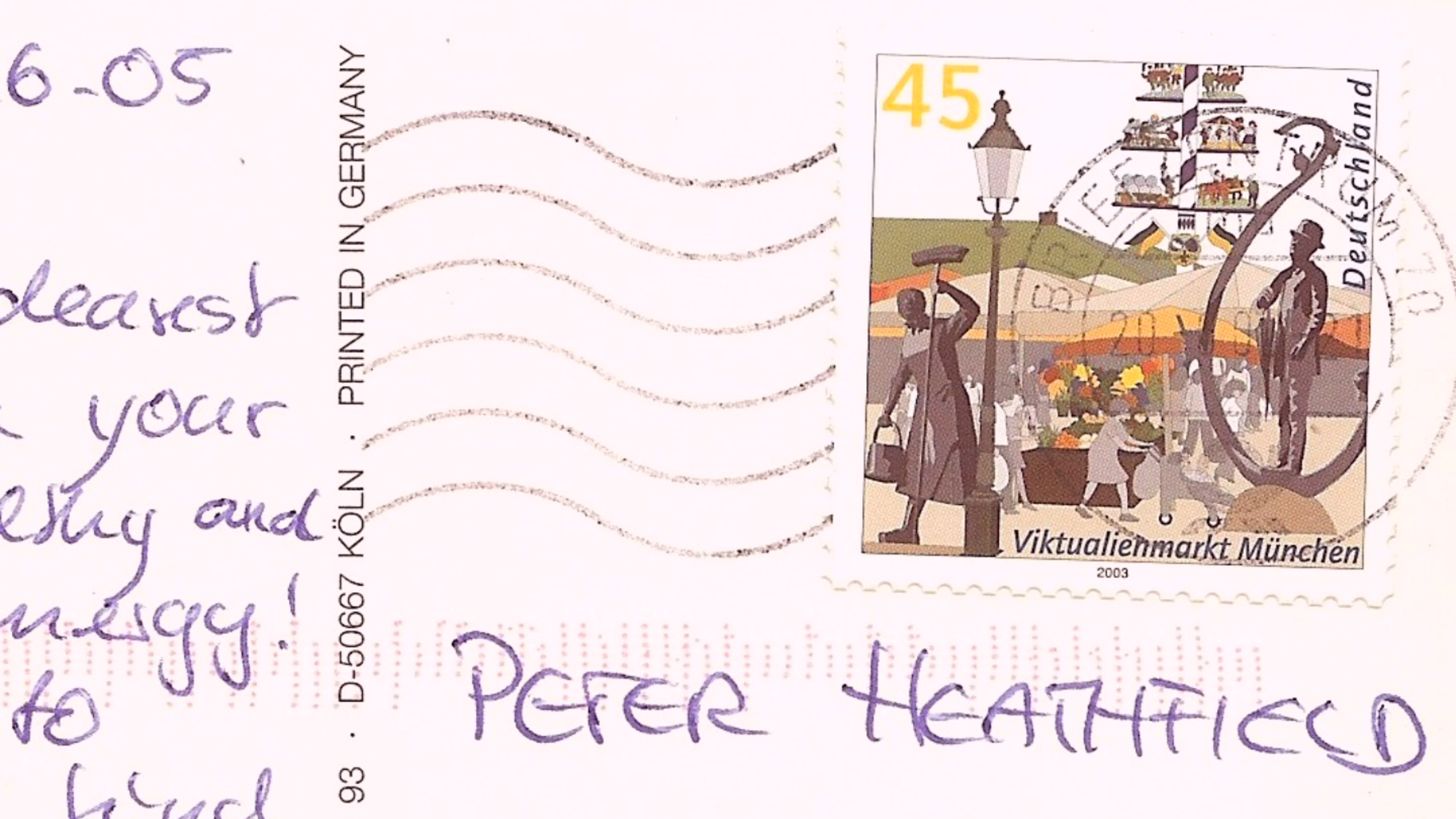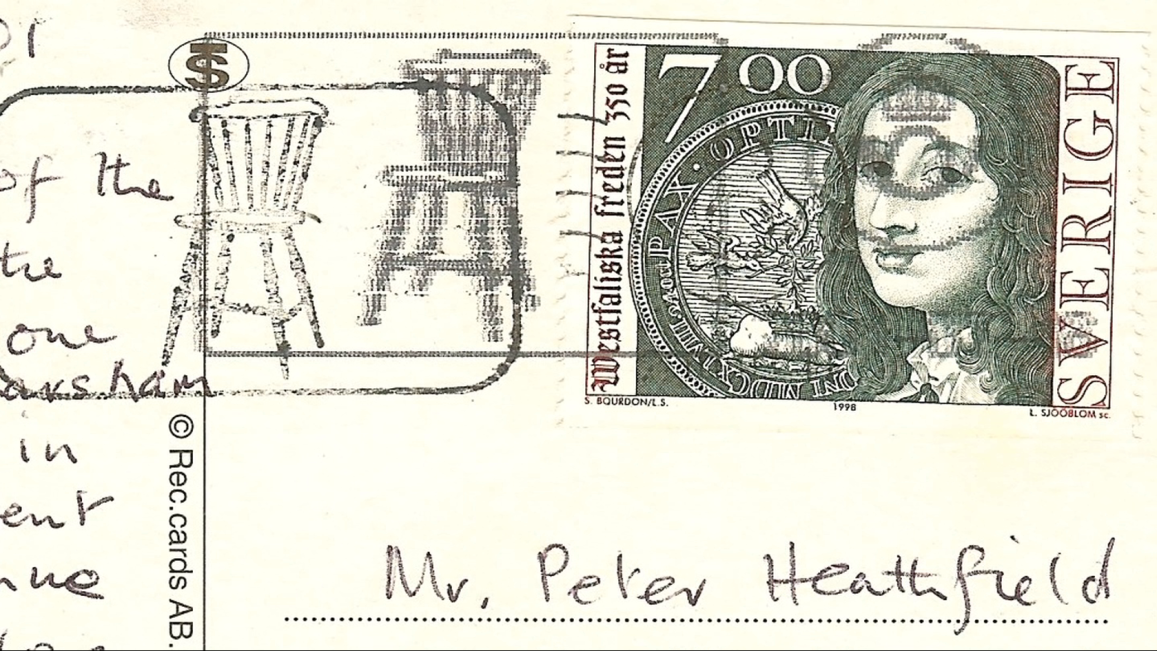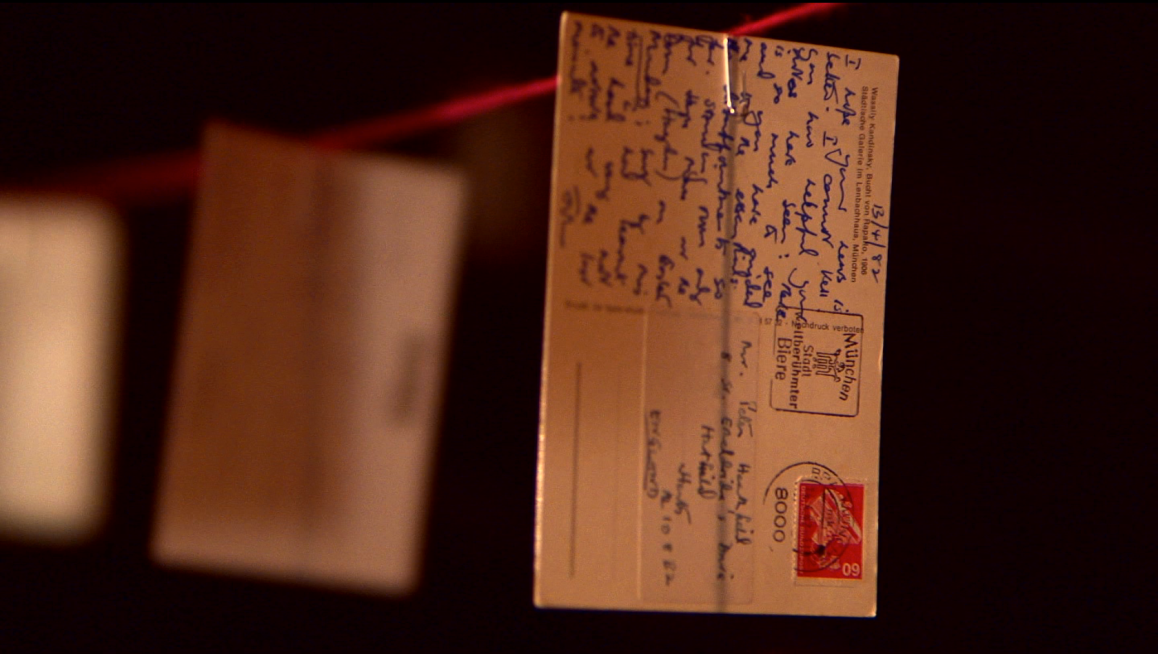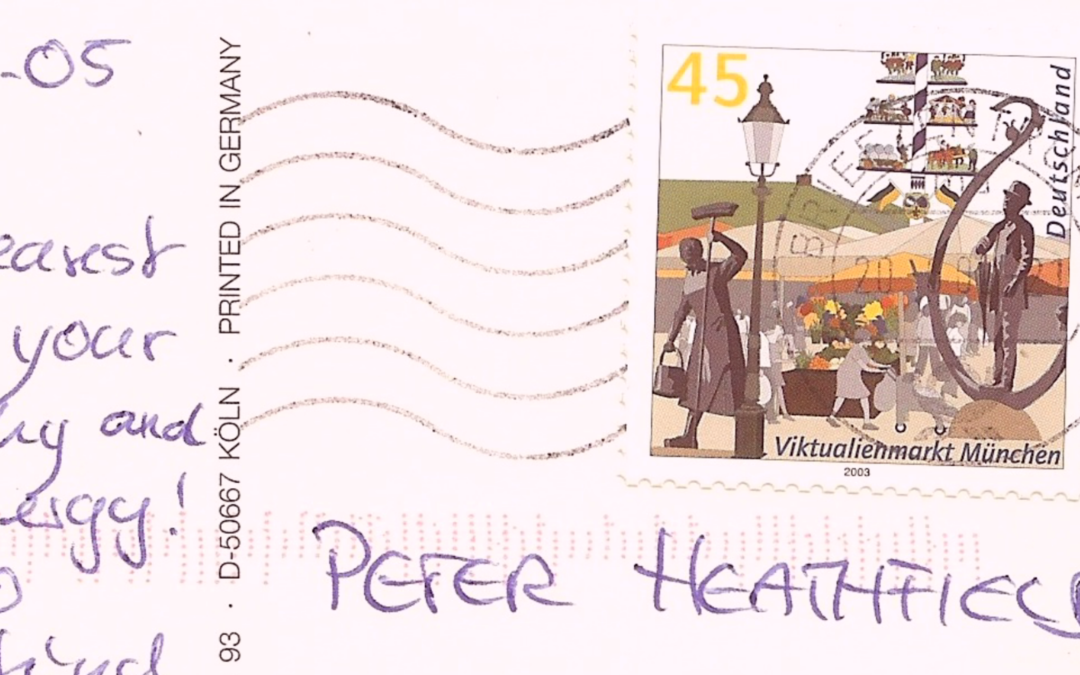“Do you think we will ever get rid of this government?” barks Keith in an empty book shop. His grievance is interrupted by a young girl’s unsteady promise to never eat meat again. Janet, a third voice, adds to the chorus and offers an apology for forgetting to water the vase of flowers.
These are the first voices I hear, the messages that I read in my hand offer a glimpse into the life of an individual. I flip the postcards over, one by one, in an attempt to figure out their origin. A stream of happy birthday messages and I realise they are all addressed to one person; Peter. We sold the postcards at the bookshop where I work for 20p each. Customers liked the pictures on the front which were all paintings; often allegories of biblical events. I felt that it would be disrespectful to split these postcards that had travelled together, one half of a story in a plastic freezer bag, so I purchased them all for £15. I began to order them chronologically, from a wartime poem by John in 1942 to present day. The messages steadily continue through the decades where Peter is treated to reviews of friend’s recent holidays or informed of their illnesses. I suspect that when they wrote to Peter, would never have expected that anybody else might some day read them, have their great sentiments of intimacy judged by foreign eyes.

“Dear Peter, it never rains but it pours… I have to go back to the breast clinic. I have arranged an appointment with Dr. Orange, a cancer expert and after my hospital visit on Thursday will know more on what I have to face”.
The postcards do not preserve the interaction between Peter and his friends but instead only depict a one sided conversation. So what did Dr. Orange say? I wanted to know. Did the young girl stick to her word and never eat meat again? As I got closer to the end of the collection, the messages began to wish Peter better health. He had problems with his eyesight and breathing, I suppose by this point he must have been in his late eighties.

Peter had managed to self archive his life through these postcards; it’s shocking to think how easily this existence could have been disposed of or disseminated and scattered around our customer’s bedrooms. I knew that he lived in Hove, England, as his address was often scribbled on the back and occasionally so were his writers. I started to write to his friends to ask if he was still alive? It did not occur to me that the same question could be easily applied to his friends. The postcards stand as a relic of their own existence as much as Peter’s. Finally I wrote to him and I became one of the voices within the collection; Dear Peter…


